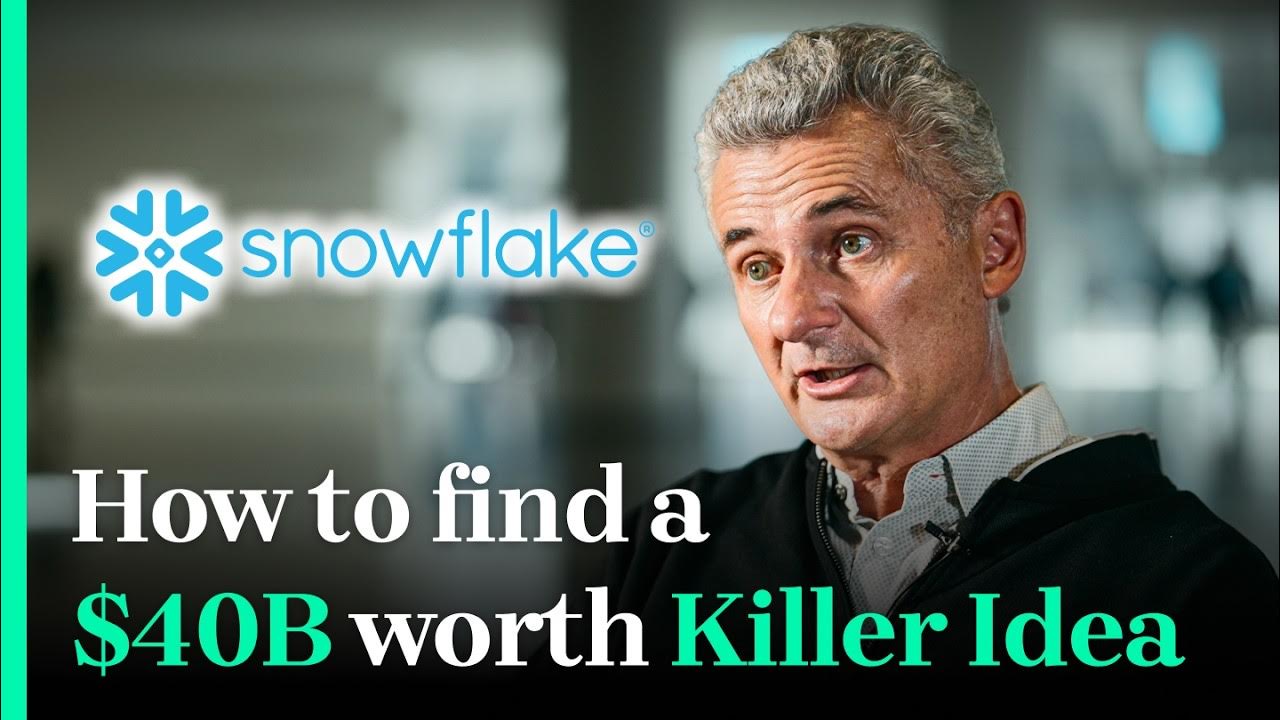ZERO TO ONE by Peter Thiel | Core Message
Summary
TLDRIn 'Zero to One,' Peter Thiel, co-founder of PayPal, shares three counterintuitive business principles. First, bet on a contrarian truth that few agree on, but whose time has come. Second, dominate a small niche market before expanding. Jeff Bezos, for example, began with books before growing Amazon. Third, strive to be a monopoly, but in a positive way, like Google or Apple, which use branding, proprietary technology, network effects, and economies of scale to succeed. These principles offer entrepreneurs insights into building billion-dollar businesses and creating a better future.
Takeaways
- 💡 Peter Thiel, co-founder of PayPal, sold the company to eBay for $1.5 billion in 2002, and his team went on to create major companies like Yelp, LinkedIn, and YouTube.
- 🎯 Thiel’s book 'Zero to One' provides counterintuitive advice for building successful businesses and shaping the future.
- 🔍 Bet on a contrarian truth—an idea that few people agree with but has potential to be widely accepted in the future. Examples include Apple, Uber, Airbnb, and Netflix.
- 🚀 To avoid failure, focus on escaping competition by betting on a contrarian truth whose time has come, as Green Tech failed initially due to premature timing.
- 📈 Start small by dominating a niche market before expanding. Jeff Bezos, for instance, focused on online book sales before turning Amazon into a retail giant.
- 🏆 Strive to create a monopoly, as monopolies prevent competitors from eating away your profits, ensuring long-term business survival.
- 🔗 There are four ways to achieve monopoly status: brand association, proprietary technology, network effects, and economies of scale.
- 📱 Apple dominates through brand association by being synonymous with stylish electronics.
- 💻 Google maintains its monopoly through proprietary technology, specifically its advanced search algorithms.
- 🌐 Facebook and Instagram benefit from network effects, as users stick to platforms where their social circles are already present.
Q & A
Who is Peter Thiel, and what is his significance in the tech industry?
-Peter Thiel is the co-founder and former CEO of PayPal. He sold PayPal to eBay for $1.5 billion in 2002. His influence extends beyond PayPal, as many of his team members went on to create successful companies like Yelp, LinkedIn, and YouTube.
What is a contrarian truth, and why is it important in business?
-A contrarian truth is a belief or insight that very few people agree with but turns out to be correct. It's important because businesses built on these truths often avoid competition and have a higher chance of success, as most people initially dismiss them.
Can you give examples of businesses that succeeded by betting on contrarian truths?
-Examples include Steve Jobs' belief that smartphones didn’t need physical keyboards (Apple), Uber and Airbnb betting that people would trust strangers for rides or accommodations, and Netflix’s belief that people would enjoy binge-watching TV shows.
What caution should entrepreneurs take when betting on a contrarian truth?
-Entrepreneurs must ensure that the contrarian truth they are betting on is timely. For instance, the green tech revolution was based on a valid truth, but the technology wasn't ready, causing many businesses to fail in the late 2000s.
Why is it better to dominate a small market rather than aim for a small share of a large market?
-Dominating a small market allows a company to build a strong foundation without competition. It generates cash flow and infrastructure, which can then be used to expand into adjacent markets, as Jeff Bezos did with Amazon starting from online book sales.
What is Peter Thiel's view on monopolies, and how does he differentiate between good and bad monopolies?
-Peter Thiel argues that monopolies can be good if they use their dominance to contribute positively to society, like Google. A bad monopoly, however, abuses its power to exploit competitors and customers. Good monopolies use their profits to innovate and benefit the world.
What are the four methods to build a monopoly according to Peter Thiel?
-The four methods are: (1) Brand association, where a company becomes synonymous with a product, like Apple and stylish electronics; (2) Proprietary technology, like Google's superior algorithms; (3) Network effects, where the value increases with more users, like Facebook; (4) Economies of scale, where large companies like Amazon reduce costs through high volume.
How does proprietary technology help companies establish monopolies?
-Proprietary technology provides companies with a unique advantage that competitors cannot easily replicate. For example, Google's search algorithms are far superior to competitors, making it difficult for others to catch up.
What role do network effects play in maintaining a monopoly?
-Network effects occur when a product or service becomes more valuable as more people use it. For example, Facebook and Instagram are hard to compete with because people are unlikely to leave platforms where their friends already are.
How do economies of scale give companies like Amazon a competitive advantage?
-Economies of scale allow companies to reduce per-unit costs as they grow. For example, Amazon can offer free shipping on heavy items because its large infrastructure and volume of sales reduce operating costs per item, making it hard for smaller retailers to compete.
Outlines

此内容仅限付费用户访问。 请升级后访问。
立即升级Mindmap

此内容仅限付费用户访问。 请升级后访问。
立即升级Keywords

此内容仅限付费用户访问。 请升级后访问。
立即升级Highlights

此内容仅限付费用户访问。 请升级后访问。
立即升级Transcripts

此内容仅限付费用户访问。 请升级后访问。
立即升级浏览更多相关视频

Competition is for Losers with Peter Thiel (How to Start a Startup 2014: 5)

Lecture 5 - Competition is for Losers (Peter Thiel)

Zero To One Animated Book Summary | Peter Thiel

How Peter Thiel Made $10 Billion Without Ever Working

How to find a Killer Idea worth $40B | Co-founder of Snowflake, Benoit Dageville

How to go from $0 to MILLIONAIRE [33 min training]
5.0 / 5 (0 votes)
